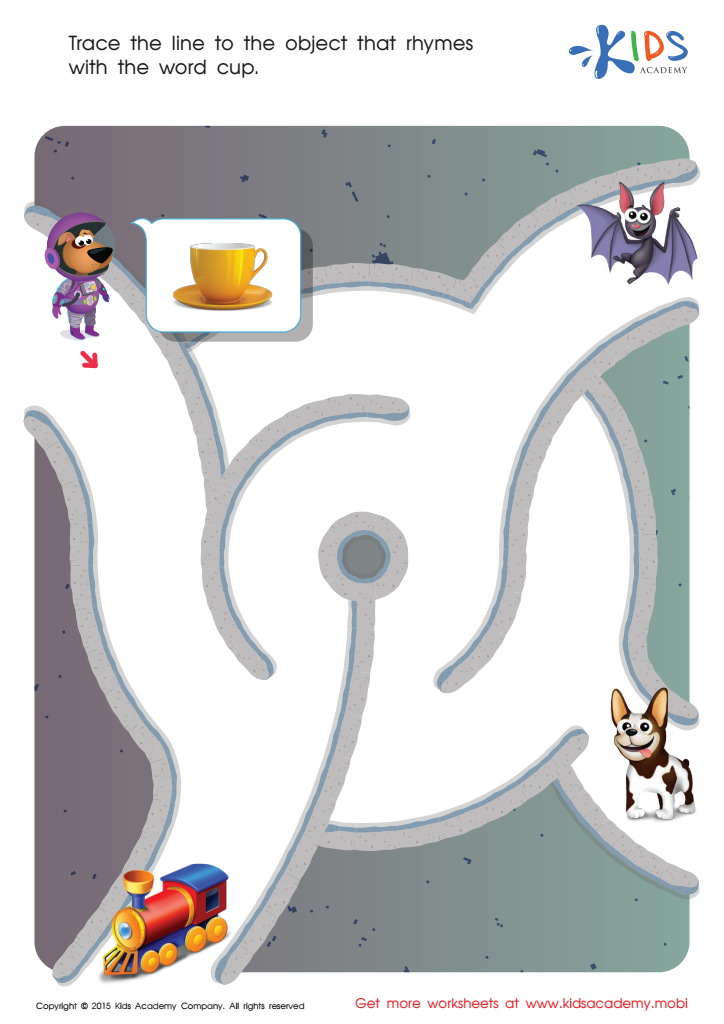Quantitative reasoning Worksheets for Kids
1 filtered results
-
From - To


Cup Rhyming Words Worksheet
Question/Answer
How to test a Kindergarten student’s Quantitative reasoning skills?
To test a Kindergarten student's Quantitative reasoning skills, use simple, engaging activities or games that involve counting, sorting, comparing quantities, recognizing patterns, and basic addition or subtraction. Incorporate visual aids like blocks, shapes, or picture cards. Ask questions that require the child to explain their reasoning process or choice, observing their ability to manipulate and understand basic numerical concepts.
Why is the Quantitative reasoning skill important for Kindergarten students?
Quantitative reasoning is crucial for kindergarten students because it lays the foundational skills for understanding basic math concepts, such as counting, measuring, and recognizing patterns. These early math skills are essential for their future academic success and help develop critical thinking, problem-solving abilities, and the capacity to make logical connections, which are valuable across various life contexts.
What are some effective activities to train students’ Quantitative reasoning skill when teaching them about Rhyming Words?
For training students' Quantitative reasoning while teaching Rhyming Words, employ activities like counting syllables to identify patterns, sorting words by their rhyme groups and counting the members in each group, and graphing words based on their rhyming sounds. Additionally, creating and solving simple math problems using the number of rhyming words found can effectively blend quantitative reasoning with linguistic skills.
 Assign to the classroom
Assign to the classroom












